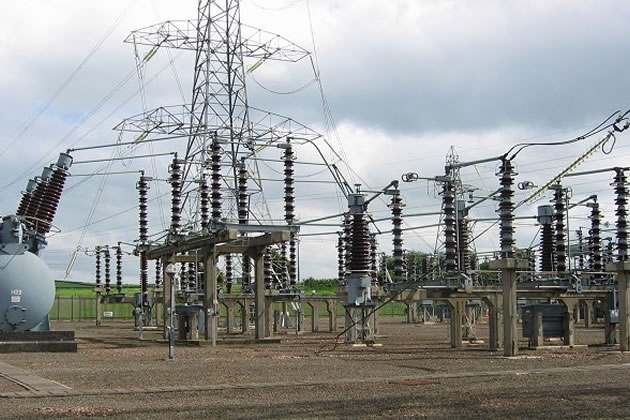New Housing Ban Possible Due to Electricity Grid Capacity
GLA suggests that it may take ten years for Ealing and Hounslow to be upgraded

An electricity sub-station. Picture: Richard Webb
|
According to a report in the Financial Times, the Greater London Authority (GLA) has written to developers warning of a significant shortage of capacity in the electricity grid in west London. The situation is so serious that it could potentially lead to a decade long ban on new housing projects in the boroughs of Ealing and Hounslow.
The warning suggests that efforts to upgrade capacity in Ealing, Hounslow and Hillingdon boroughs being undertaken by SSEN and the National Grid may take over ten years.
The newspaper quotes the GLA as telling developers, “major new applicants to the distribution network ... including housing developments, commercial premises and industrial activities will have to wait several years to receive new electricity connections”.
This could mean that there will be an effective ban on large scale housing projects because of the lack of capacity. Adding capacity is also hampered by high land values which makes increasing the power supply expensive and challenging.
The issue has come to light after a developer recently made an application for a scheme to be connected to the grid and was told that there is not “sufficient electrical capacity for a new connection” until up to 2035.
The GLA said that the problem in west London is particularly acute in Ealing and Hounslow because of the number of data centres being set up which use fibre optic cables running along the M4 corridor.
The GLA is quoted as saying, “data centres use large quantities of electricity, the equivalent of towns or small cities, to power servers and ensure resilience in service”.
David O’Leary, policy director at the Home Builders Federation, is quoted by the Financial Times as saying that developers are, “still getting their heads round this, but our basic understanding is that developments of 25 units or more will be affected. Our understanding is that you just can’t build them.”
He added that the GLA’s note had already prompted one HBF member to reconsider the purchase of a plot of land for development in Ealing.
He also expects the problem to get progressively worse because of increasing use of electric vehicles and the requirement for new homes to use low-carbon technologies such as heat pumps.
Potential solutions include incentivising electricity usage at low-demand times of day and installing cables to connect to less-constrained grids nearby.
Councillor Tom Bruce, Cabinet Member for Regeneration and Development at Hounslow Council, said, “We are aware of the pressures on the electrical grid and we are pleased that the GLA is exploring innovative solutions to mitigate the immediate constraints from this issue.
“Despite these challenges, we still have an acute housing shortage in our borough and we remain committed to building affordable homes for our residents. We will also work closely with the GLA to ensure economic growth is not adversely affected by these pressures.”
An Ealing Council spokesperson said, "We are deeply concerned by this news and we are currently reviewing how the recently announced electricity capacity constraints will impact our substantial housing development programme. In the middle of an affordable housing crisis in Ealing and across London, it is vital that we are able to continue building new genuinely affordable homes to let. We have requested urgent meetings with the Greater London Authority and government ministers to discuss how this issue can be resolved and will be monitoring developments closely."
The GLA did not respond to a request for comment from the Financial Times.
Like Reading Articles Like This? Help Us Produce More This site remains committed to providing local community news and public interest journalism. Articles such as the one above are integral to what we do. We aim to feature as much as possible on local societies, charities based in the area, fundraising efforts by residents, community-based initiatives and even helping people find missing pets. We've always done that and won't be changing, in fact we'd like to do more. However, the readership that these stories generates is often below that needed to cover the cost of producing them. Our financial resources are limited and the local media environment is intensely competitive so there is a constraint on what we can do. We are therefore asking our readers to consider offering financial support to these efforts. Any money given will help support community and public interest news and the expansion of our coverage in this area. A suggested monthly payment is £8 but we would be grateful for any amount for instance if you think this site offers the equivalent value of a subscription to a daily printed newspaper you may wish to consider £20 per month. If neither of these amounts is suitable for you then contact info@neighbournet.com and we can set up an alternative. All payments are made through a secure web site. One-off donations are also appreciated. Choose The Amount You Wish To Contribute. If you do support us in this way we'd be interested to hear what kind of articles you would like to see more of on the site – send your suggestions to the editor. For businesses we offer the chance to be a corporate sponsor of community content on the site. For £30 plus VAT per month you will be the designated sponsor of at least one article a month with your logo appearing if supplied. If there is a specific community group or initiative you'd like to support we can make sure your sponsorship is featured on related content for a one off payment of £50 plus VAT. All payments are made through a secure web site. |
July 29, 2022